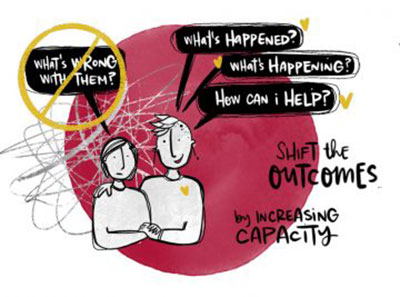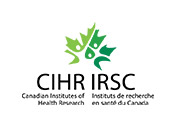
The Four Principles of TVIC
- Understand trauma and violence, especially structural violence, its prevalence and its impacts on peoples’ lives and behaviours;
- Create emotionally, culturally and physically safe environments for people who access and provide services;
- Foster opportunities for choice, collaboration, and connection; and
- Provide strengths-based and capacity-building ways to support people who access services
- Trauma is the experience of, and response to, a negative event or events that threaten the person’s safety, life, or integrity, and overwhelms their ability to cope – it’s more than everyday “stress” and includes responses such as shock, terror, shame, and powerlessness
- Trauma can re-wire the brain and our bodies, making us unable to regulate stress hormones, which can lead to hyper arousal and acting out (e.g. in children) or complete withdrawal. These behaviours, along with other ways to cope with physical and emotional pain, such as using substances, are expected effects of trauma and violence
- Over 75% of Canadians experience trauma that would meet the threshold of post-traumatic stress disorder (PTSD); these experiences can happen once (disasters, accidents), or many times (child abuse, partner violence); they can also affect entire groups (war, colonialism, pandemics). Policies and practices can also be violent (i.e., cause harm); systemic racism, sexism, able-ism, transphobia, and other forms of discrimination, poverty and insecure access to safe shelter are all forms of structural violence that exacerbate health and social inequities
- When people seeking care are treated with respect and compassion, with attention paid to ensuring an emotionally, physically and culturally safe environment1, they feel more confident in their care, more able to handle their health problems and this is related to improved health outcomes
1 Including attention to language used (i.e. person-first language and correct pronoun usage). See “Overcoming Stigma Through Language”, Canadian Centre on Substance use and Addiction & Community Addictions Peer Support’s Primer on Stigma: https://www.ccsa.ca/sites/default/files/2019-09/CCSA-Language-and-Stigma-in-Substance-Use-Addiction-Guide-2019-en.pdf.



